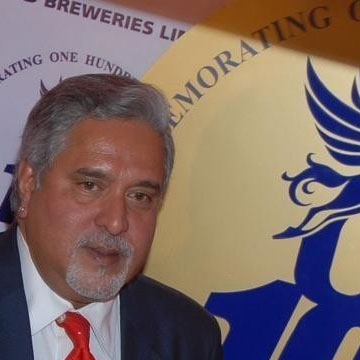 New Delhi:
New Delhi: The UB Group of liquor baron Vijay Mallya, who resigned from the Rajya Sabha after defaulting on debts of Rs.9,000 crore to Indian banks, was sharply rapped by a parliamentary panel four decades ago for illegally importing worm-infested Australian hops that would have played havoc with the country's agriculture, a reply to an RTI querry by IANS has revealed.
"How a private brewery could get clearance from both the ministries of commerce and agriculture and make a daring attempt to smuggle in, in a way, infested hop cuttings by air without the necessary permits from the Directorate of Plant Protection, Quarantine and Storage is a matter which calls for a thorough investigation with a view to fixing individual responsibility. The matter should be referred to Central Vigilance Commission," the Public Accounts Committee said in its 136th report on February 25, 1975.
The report, however, was never made public.
Enquiries reveal that after more than four decades, no action was taken against anyone, in spite of the strongly-worded report. Only the Quarantine Act was amended to prevent such frauds.
The committee, headed by then Lok Sabha member from West Bengal Jyotirmoy Basu of the CPI-M, was informed by the finance ministry that a consignment of hop plant root cuttings (12,000 numbers) packed in six cases was off-loaded at the Palam airport of New Delhi on May 19, 1974, from an Air India plane. After examination, the consignment was destroyed.
Hop plants are used to add flavour and improve beer quality. The consignment was imported by United Breweries, which at that time was headed by Mallya's father, Vittal.
The committee had taken cognizance of a news item that the import of worm-infested hop plants posed a threat to the Indian farming. It had also examined the representatives of the ministries of commerce and agriculture. The report is, however, silent on why exactly the plants were sought to be imported.
The PAC observed that the case had thoroughly exposed the ineffectiveness of the age-old and outdated legislation and the governmental machinery, and the loopholes in the regulatory measures promulgated by the Indian government from time to time to prevent the import of infested plants with a great potential hazard.
The report said the panel was "informed that the government of India is examining the question of imposition of penalties in respect of the transaction of import of hop plants in contravention of the provisions of the Destructive Insects and Pests (DIP) Act and that they are also examining the need for a comprehensive revision of the act."
The committee said India had written to Australia, pointing out that the consignment in question was not accompanied by a certificate saying it was free from injurious diseases.
Mallya, facing a fresh trouble, is currently living in the United Kingdom. His passport was revoked last month after he ignored at least three summons from the Enforcement Directorate for a probe into his Rs.9,000 crore default.
The industrialist, an independent Rajya Sabha member from Karnataka, says he has been forced into exile.
He sent a resignation letter to house Chairman Hamid Ansari that was accepted on Wednesday even as a parliamentary ethics panel had recommended that his Rajya Sabha membership be revoked with immediate effect.
 New Delhi: The UB Group of liquor baron Vijay Mallya, who resigned from the Rajya Sabha after defaulting on debts of Rs.9,000 crore to Indian banks, was sharply rapped by a parliamentary panel four decades ago for illegally importing worm-infested Australian hops that would have played havoc with the country's agriculture, a reply to an RTI querry by IANS has revealed.
New Delhi: The UB Group of liquor baron Vijay Mallya, who resigned from the Rajya Sabha after defaulting on debts of Rs.9,000 crore to Indian banks, was sharply rapped by a parliamentary panel four decades ago for illegally importing worm-infested Australian hops that would have played havoc with the country's agriculture, a reply to an RTI querry by IANS has revealed.